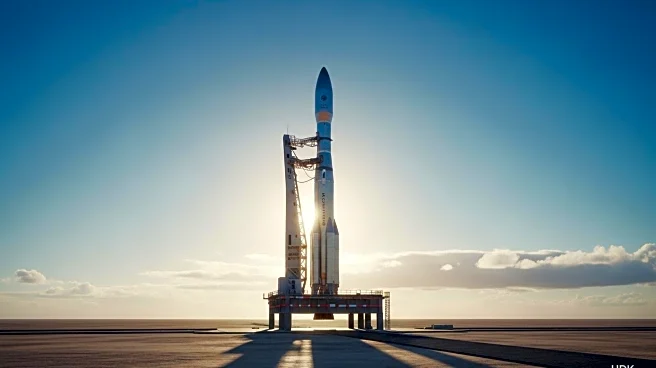What's Happening?
The rapid increase in global rocket launches is raising concerns about the potential impact on the Earth's ozone layer. According to Sandro Vattioni, the surge in rocket activity, which has seen launches increase from 97 in 2019 to 258 in 2024, could slow the recovery of the ozone layer. This layer is crucial for protecting life on Earth from harmful UV radiation. Rocket emissions, including chlorine and soot particles, are released into the middle atmosphere, where they can remain much longer than ground-based emissions. These pollutants can catalytically destroy ozone molecules, posing a threat to the ongoing recovery efforts initiated by the Montreal Protocol, which banned ozone-depleting substances like CFCs in 1989.
Why It's Important?
The potential delay in the recovery of the ozone layer due to rocket emissions could have significant environmental and health implications. The ozone layer is vital for blocking harmful ultraviolet radiation, which can lead to increased skin cancer rates and other health issues. The space industry's growth, while offering technological advancements, poses a new environmental challenge that requires coordinated global action. The findings suggest that without regulation, the emissions from rockets could delay the ozone layer's recovery by years or even decades, impacting ecosystems and human health worldwide.
What's Next?
To mitigate the impact of rocket emissions on the ozone layer, coordinated efforts between scientists, policymakers, and the space industry are necessary. This includes monitoring rocket emissions, minimizing the use of chlorine and soot-producing fuels, and promoting alternative propulsion systems. The study highlights the need for international cooperation similar to the Montreal Protocol to address this emerging environmental threat. As the space industry continues to grow, it is crucial to implement regulations that ensure the protection of the ozone layer.










